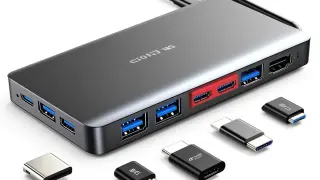
-
Home
-
Products
-
About Us
-
OEM&ODM
-
News
-
Blog
-
Contact Us
Inquiry
Form loading...

Demand for quality docks is on an upward spiral and rapidly changing. According to a recent market analysis done by Grand View Research, the global docking station market would reach USD 4.78 billion by 2025, growing at a CAGR of 7.5%. The fascinating growth could be attributed to portable devices becoming accepted by professionals and workers in remote locations, thereby emphasizing the need for dependable and efficient docking solutions.
As this sector is evolving, it is very important for companies to select the proper manufacturers that match their quality requirements. Zhongshan Sinseader Electronic Co. Ltd. set up shop in 2007 and is dedicated to the research, development, production, and selling of all kinds of computer peripherals-from Laptop Docking Stations to everything in between. With a focus on making quality and innovative products, Sinseader Electronic finds itself in a good position to address the changing requirements of a dynamic market and go beyond user expectations in quality.
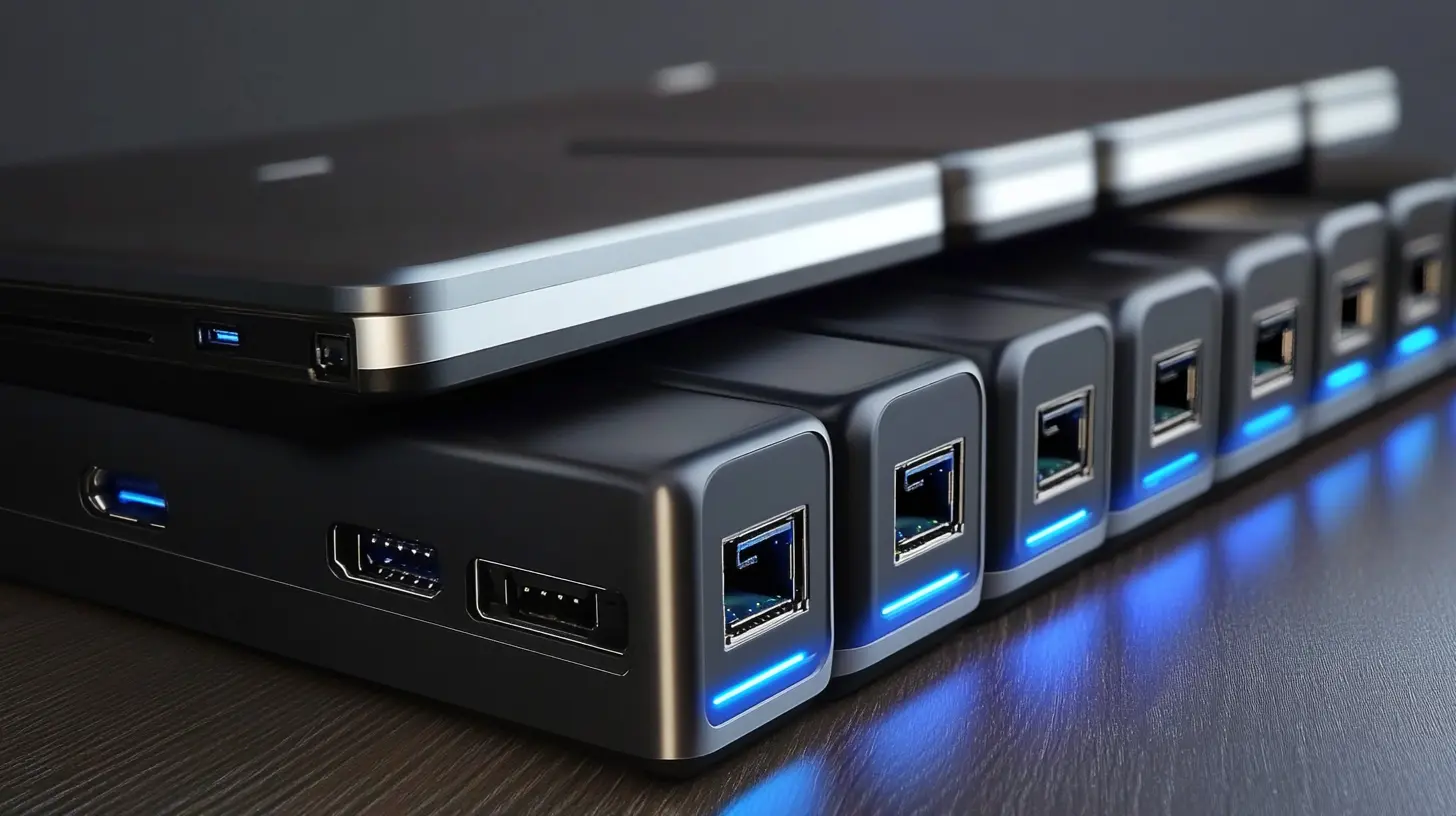
When finding the right manufacturer for laptop docking stations, key specifications must be identified to validate that the product conforms to quality standards. According to a recent report from Global Market Insights, the global docking station market is expected to exceed USD 2.5 billion by 2026, indicating a growing demand for high-quality and adaptable docking solutions. Thus, important features must be identified find that which makes a docking station export-quality reliable. One main feature worth considering is the types of ports. Good-quality docking stations would usually possess numerous USB ports, an HDMI port, an Ethernet port, and an audio output connector. According to a survey by Tech Research Company, users were primarily interested in a docking station with at least three USB 3.0 ports for faster data transfer and better compatibility with devices. Then, another critical factor to consider is the power delivery capacity of a docking station, where 60W is preferably the minimum, as this will provide efficient charging of laptops while in use. Another consideration is cross-OS compatibility. A docking station that works with both Windows and mac OS creates ease of use and satisfaction for consumers. Recent trends communicated by IT research firm Gartner show that over 70% of workers are operating in hybrid setups, therefore cross-template compatibility must be a prime consideration in the selection process. Finally, durability and build quality will have weights on the long-term satisfaction and usability of the docking station since users will always crave for steadfastness against regular wear and tear.
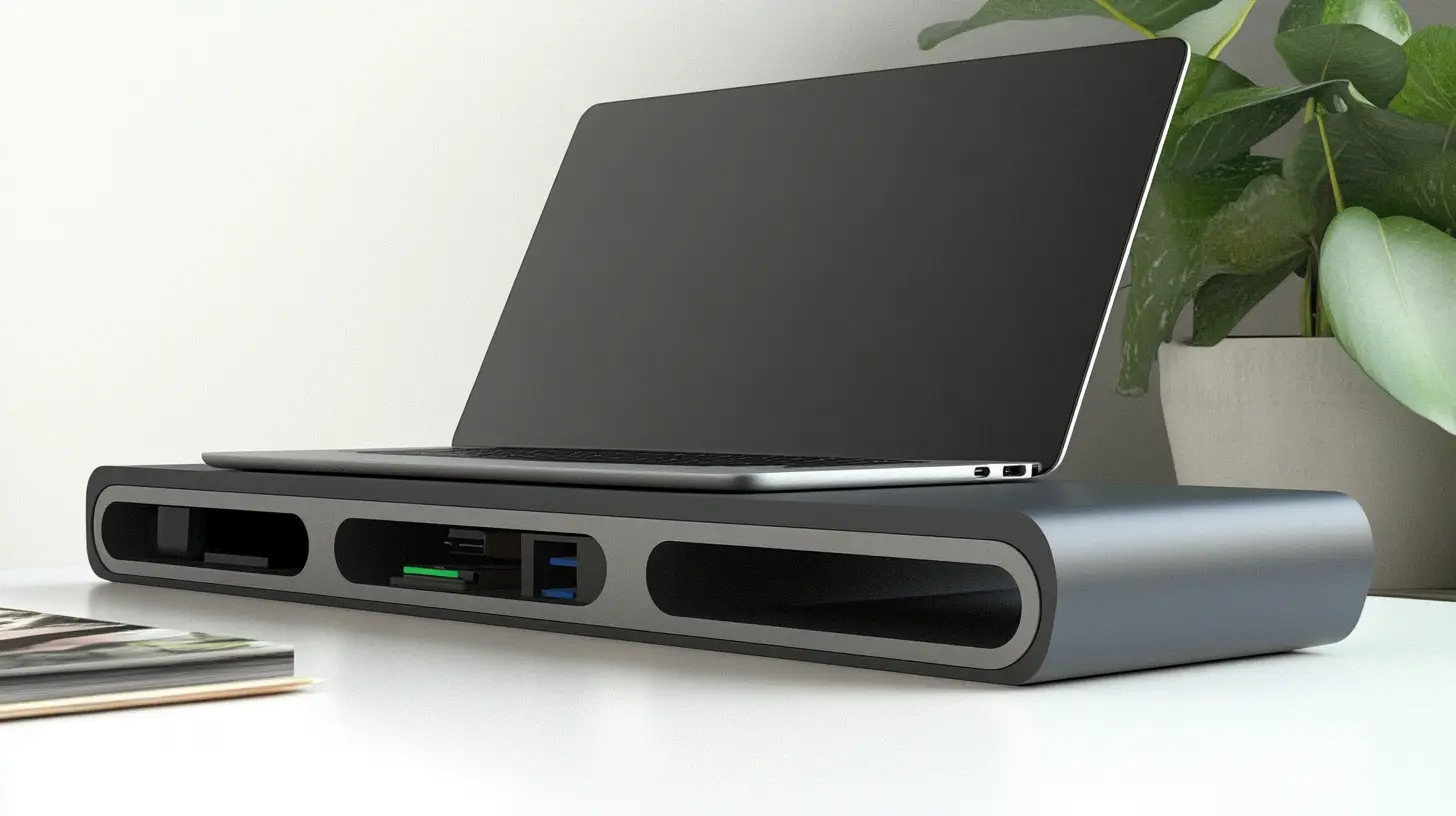
When choosing a manufacturer of laptop docking stations, the experience and reputation of that organization will be paramount considerations. Manufacturers that have been around longer usually have a plethora of knowledge with respect to design, production, and the latest technological advances. This long history usually implies reliability of the product and a deeper understanding of customers' needs, which is quite essential in a fast-evolving tech market.
Moreover, the reputation of a manufacturer in the industry can also be a good indicator of the quality on offer from that manufacturer. Manufacturers known for their commitment to excellence would likely have an equally uncompromising quality-checking system in place. Reading industry reviews, customer testimonials, and assessments by third parties will all help shine a light on the reputation of the manufacturer. Quite a good reputation may connote a lot of things, including product quality and reasonable and friendly support, warranty, and customer service policies, and response to varying technological market demands.
Well-established manufacturers are likely to partner with reputable suppliers and technology companies, and these connections can signify their commitment to quality and innovation. This enhanced collaboration contributes to the overall integrity of their products and renders them a safer choice for your laptop docking station needs.
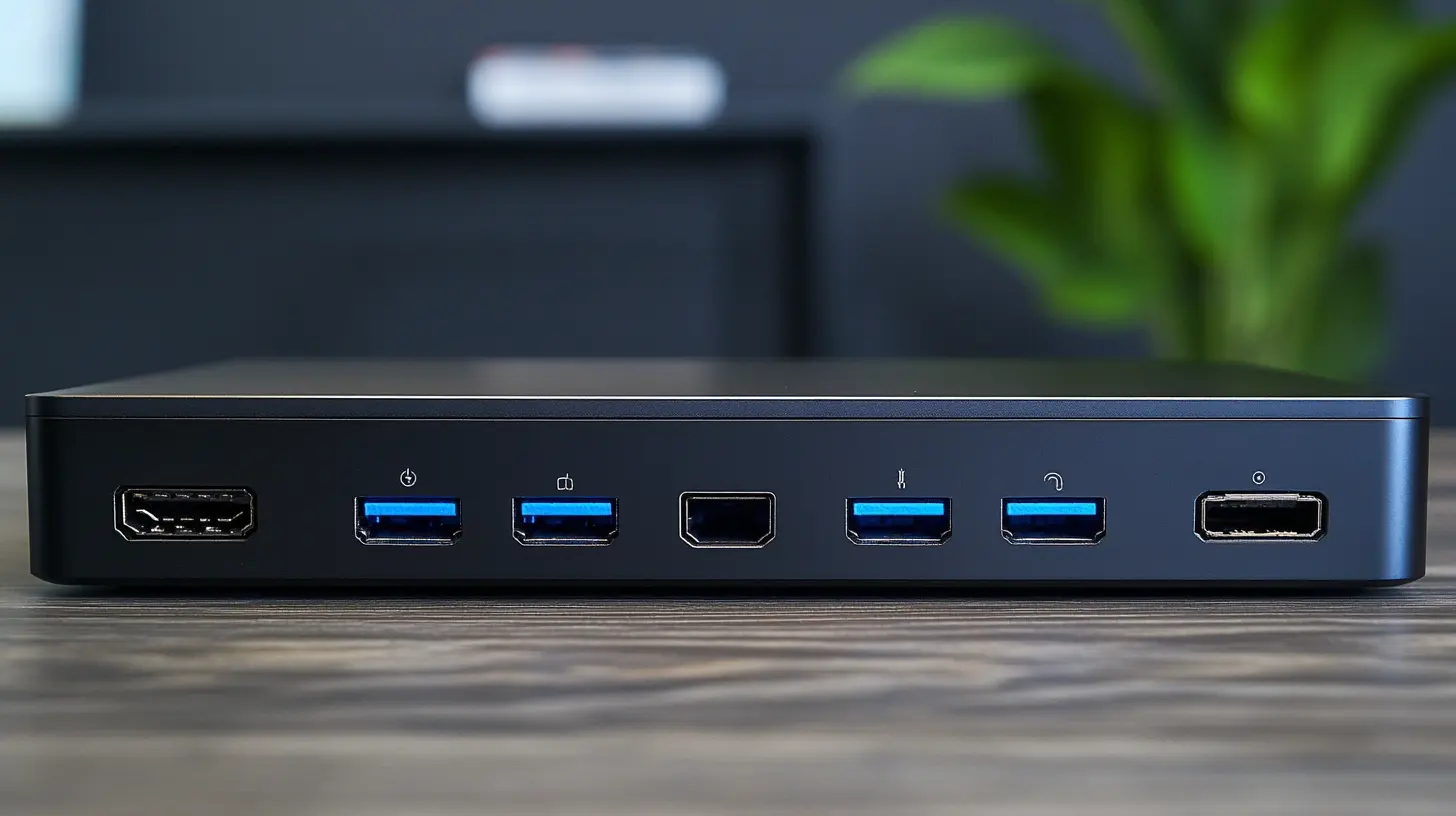
Quality control processes are important when choosing manufacturers for laptop docking stations. Quality control doesn't only speak of lifetime and effectiveness but also of the brand per se before the customers in a highly competitive market. To find the best manufacturer who has a compatible quality standard with yours, you must have a peep in their quality assurance protocols from raw-mat purchase to end-product-testing.
There should be some systematic approaches for quality control in all the production phases. This should be inclusive of testing on inputs within the production line and keeping an eye on the assembly. The finished product must undergo very comprehensive inspections about functionality, durability, and compatibility with any laptop models. Through these processes, businesses can determine if a possible manufacturer will deliver quality products with very high benchmark standards.
Furthermore, alignment with national or international quality initiatives can signal a manufacturer’s commitment to excellence. For example, the current emerging policies on the quality improvement of all industries emphasize the need for ensuring high operational standards. Companies can implement a fine-tuning of quality assurance programs by partnering with these manufacturers as much as possible with the current initiatives, thereby making their docking stations reliable and very competitive in the market.
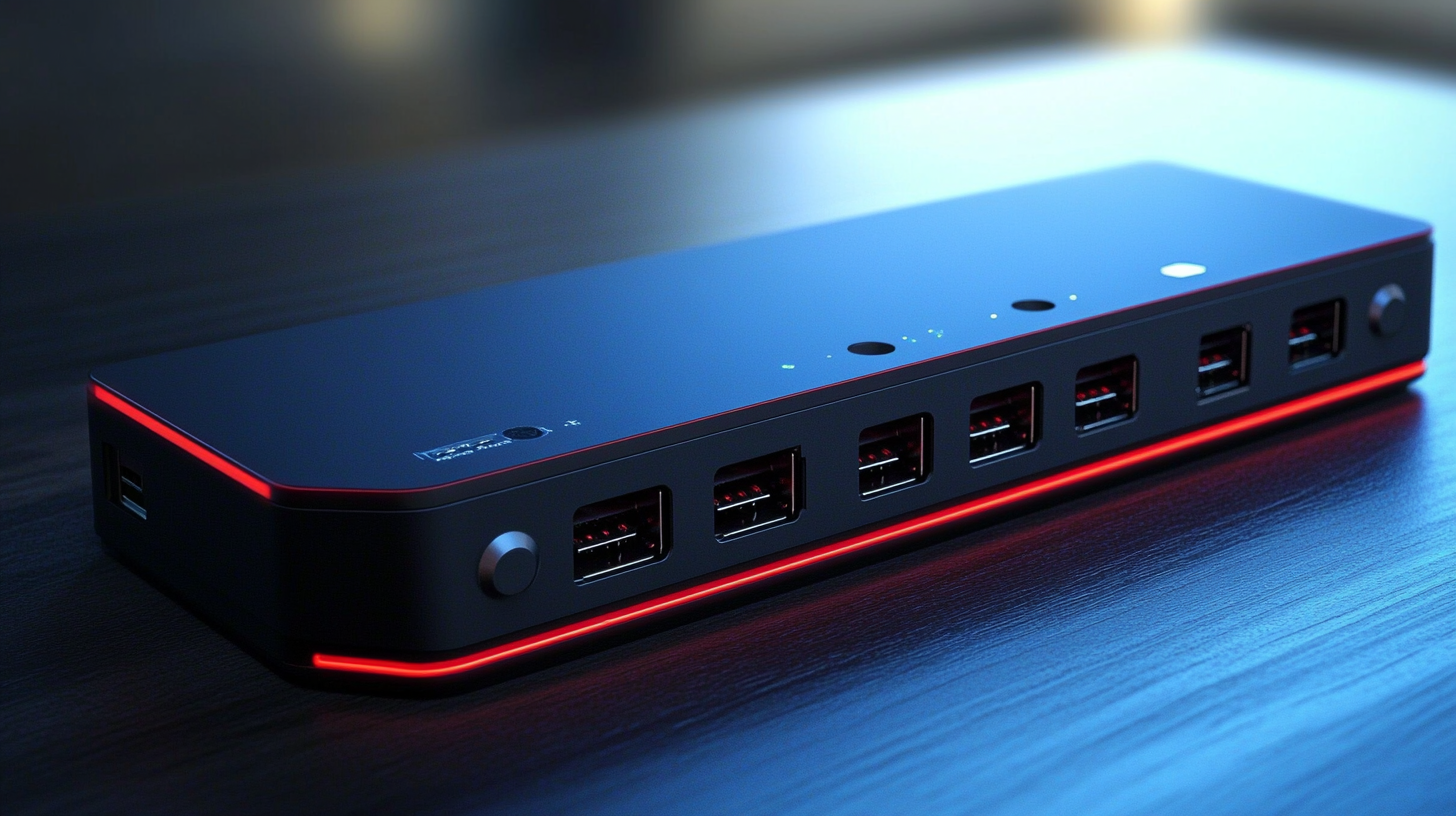
Docking stations for laptops of relevance. The ideal manufacturer is not only supposed to have a standard product line available but also be flexible enough to adapt individualized aesthetic characteristics that enhance the experience of use. These may include ergonomic features, additional ports, or aesthetic considerations that align with brand identity.
Having all these different aspects of customization is another very important aspect to hiring. Customized options allow companies to compete against each other by having their differentiating features. For example, some businesses prefer docking stations with a built-in wireless charging system or may require integrated security features to the docking station for increased protection, while all the customizable other features would be dealing with aesthetics.
Working directly with the manufacturer during the design and development stage will help spark ideas for unique products and a greater chance of a marketable product in the end. A strategic partnership on such a relationship would facilitate feedback loops whereby links would be created for the possibility of making amendments based on prototypes or early models. Prioritizing design and customized options would thus set the tone for developing the best-in-class laptop docking stations that could be appreciated by end-users and will be more marketable in today's world.
It is worth noting that in the technology-driven world of today, the importance of testing and certification in the case of laptop docking stations has reached an all-new high. The laptop accessory market is expected to grow at a compound annual growth rate (CAGR) of 8.4% between 2021 and 2028, thereby making product reliability extremely crucial for manufacturers to succeed in this environment characterized by cut-throat competition. A report published by ResearchAndMarkets states that nearly 63% of consumers rank product reliability as priority number one when making their purchase decisions. This should drive the need for testing standards to be fulfilled to meet their expectations sincerely.
Testing and certification are critical to the manufacture of docking stations that meet acceptable quality criteria and fit within industry regulations. For example, it is mandatory to have UL (Underwriters Laboratories) and CE (Conformité Européenne) certificates to indicate that a product has passed for safety and efficacy. Research shows about 70% of consumers would be more likely to purchase a product that bears these certificates, engendering trust in the brand. Building up a strong and comprehensive quality assurance chain will help reduce returns and enhance customer satisfaction, both of which have a direct bearing on a company's bottom line.
Additionally, it is vital for manufacturers to endorse some testing protocols to ascertain the performance and durability of their docking stations. Following a warning by the International Electrotechnical Commission (IEC), failure to do proper testing may, instead, lead to an enormous loss of revenue and tarnish the reputation of the company. Such testing protocols are an important way of guaranteeing that products are safe and functional for the many varied requirements posed by consumers. This aforementioned diligence equates to increased presence in the market and ultimately greater consumer loyalty.
Another major consideration in the manufacturing of laptop docking stations is that of the chosen materials and components, which go a long way to guarantee a good performance life for the product. The consumers of today are more likely not easily satisfied; the expectation is that their devices will be both durable and efficient. So, in addition to other things, manufacturers must really put premium on quality materials that will make a docking station stronger against the wear and tear. The application of tough plastics, metal alloys, and superior electronic components can reasonably improve overall product quality.
Selection of components also follows industry's standards. Thus, certifications like RoHS and CE mean not just being compliant to the environmental policies but even assurance to customers that the products have passed a certain threshold of safety and performance. Sufficient testing should be done on raw materials and the final products by the manufacturers themselves to ascertain that they could withstand ordinary use and environmental stress. Such investment in quality components will certainly lower the chances of defects but will also increase customer satisfaction.
The right suppliers play an equally important part in this aspect. Therefore, when a manufacturer partners with an honorable supplier that really applies rules to itself, it ensures every component that goes into the docking station is reliable. These relationships enable manufacturers to be informed of innovations in material sciences, so that they can continue to modernize their value offerings. Ultimately, the focus on material and component quality creates the foundation for a product that can be trusted and reputation-driven in the market.
Choosing a vendor of laptop docking stations involves quietly striking a balance between price and uncompromising quality. One has to do this tightrope act in the light of both critical factors in the market. The emerging technologies about ETL and NoETL data frameworks very much resemble the paradox in engineering where the crucial importance attaches to quality integration of data. Similar to that risk of not getting the right balance in striking a trade-off with quality components in the bigger scheme of things, embracing operational efficiency through inefficiency itself needs to carefully be juggled with effective data management.
The semiconductors manufacturing sector for the automotive industry, for example, puts a premium on setting high-quality standards in conjunction with aggressive control over production costs. Only by identifying the correctness of material and methods related to production processes can the manufacturers ascertain reliability quality in the expected output. This helps to understand how to be more shrewd when it comes to citing manufacturers from the laptop docking station market with a focus on the philosophy that low-cost options may require more in the long run.
Forward-looking organizations have been forced to start leveraging third-generation metrics platforms that would make data strategy sound inventive, much like how manufacturers play around with supply chains to reduce costs. With the present situation of rapid technological advancements, the dynamics of the relationship between cost management versus qualitative output continue to evolve and increasingly require enterprises to procure partners that not only serve their immediate operational needs but also match appropriate quality standards over the long term.
In choosing the right manufacturer for laptop docking stations, customer support and warranty options must be given high priority. This was recently seen with Apple's announcement in Australia that it would offer free AppleCare+ support for its hardware. The significance of a strong apparatus for customer service and warranty programs cannot be reinforced enough. Consumers are impatient for reassurance that their investments are safe, and good warranty options reflect a manufacturer's confidence in their product quality.
In the cut-throat arena of laptop accessories, especially for products such as docking stations that often play very consequential roles in professional settings, manufacturers who prioritize extensive customer support gain competitive advantage. This support may include technical assistance, availability of sparepart replacements to the customers, and warranty offers well beyond the industry norm. With all these active responses to customer requests, companies can better their chances of converting customers into loyal long-term patrons.
Additionally, an expectation for excellent warranty options has come to be very apparent in the technology industry. Customers feel secure with enough coverage of faults or defects after making the purchase. Manufacturers, therefore, have been able to attract customers while ensuring a reputation for quality and reliability if they were to offer warranty options longer than the industry norm and easy-to-understand claims procedures. This shift towards superior customer service and warranty options reflects technology's changing demand for accountability and support.
Evaluating a manufacturer's experience is crucial because established manufacturers possess extensive knowledge in design, production, and technological advancements, which translates to reliable products and a better understanding of customer needs.
A manufacturer's reputation is often indicative of the quality they provide, as companies known for excellence typically have strict quality control processes and positive feedback from customers, reflecting their product quality and customer service approach.
Industry reviews and customer testimonials offer insights into a manufacturer’s standing and performance, helping potential buyers gauge the reliability and satisfaction associated with their products.
Collaborations with reputable suppliers and technology leaders can indicate a manufacturer's commitment to quality and innovation, enhancing the integrity and reliability of their products.
Key aspects include rigorous testing of materials, continuous monitoring during assembly, and comprehensive inspections of the final product to ensure functionality, durability, and compatibility.
Alignment with quality initiatives demonstrates a manufacturer's commitment to maintaining high operational standards, which can improve reliability and competitiveness in the market for their products.
Businesses should investigate a manufacturer's quality assurance protocols, including their processes for raw material procurement, production monitoring, and final product inspections.
Effective quality control directly influences product longevity and reliability, which are critical for maintaining a strong reputation and competitive edge in the market.
Comprehensive inspections assess the final product's functionality, durability, and compatibility with various laptop models, ensuring that only high-quality products reach the market.
Partnering with manufacturers that emphasize quality can bolster a business's reputation and product reliability, leading to increased customer satisfaction and competitive advantage.



